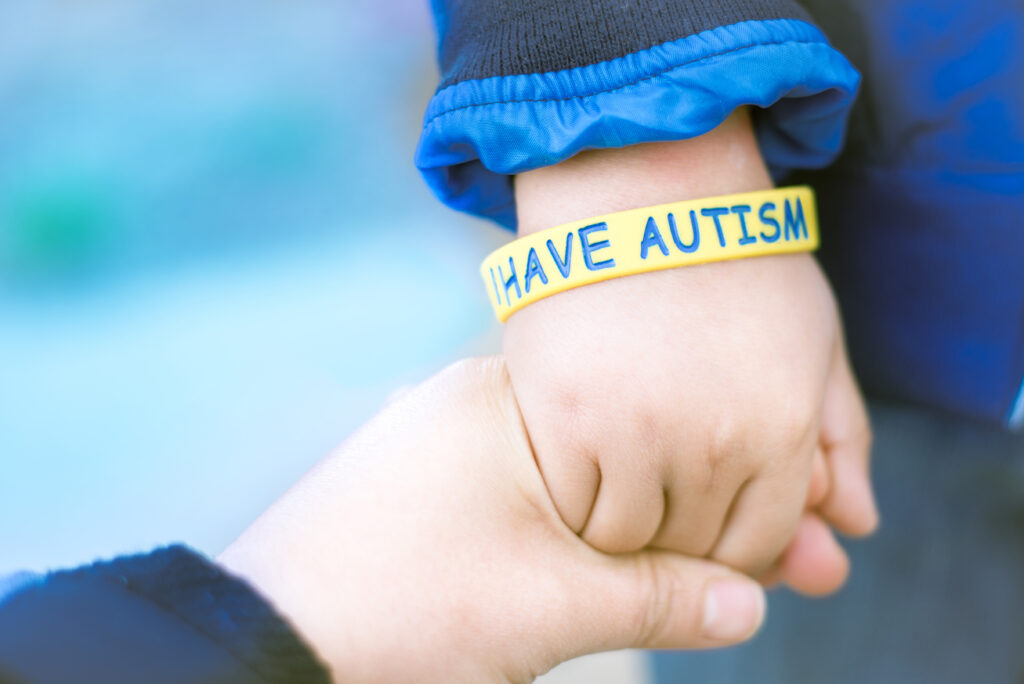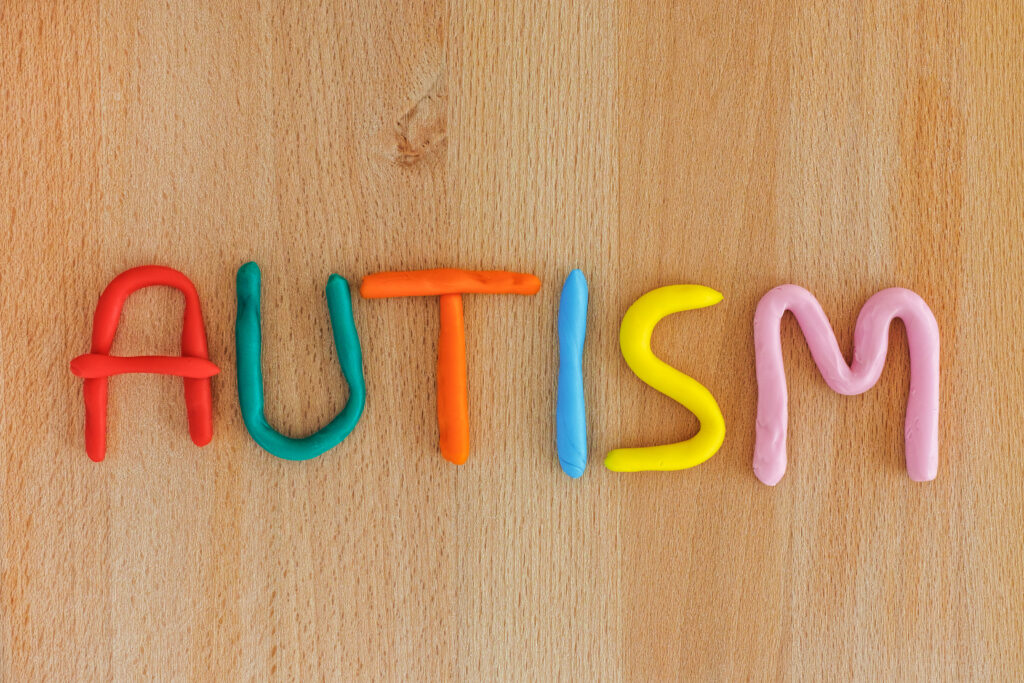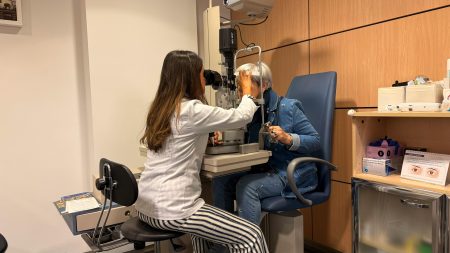In today’s society, there are many misconceptions about autism that often lead to stigma and misunderstanding. These stereotypes can create barriers for individuals on the autism spectrum and their families, preventing them from accessing the support and resources they need. It’s time to challenge these misconceptions and work towards a society that embraces diversity and celebrates the unique strengths of every individual.
Mark Blakey, a writer for Autism Parenting Magazine, has debunked six common stereotypes about people on the autism spectrum. These stereotypes include the belief that autistic individuals lack empathy, that they all have severe intellectual disabilities, and that they are inherently aggressive. Mark explains that these stereotypes are not only inaccurate but also harmful, as they perpetuate negative attitudes and prevent individuals on the autism spectrum from being fully included in society.
By debunking these misconceptions and recognizing the diverse experiences and abilities of individuals on the autism spectrum, we can create more inclusive and supportive environments. This includes acknowledging the importance of relationships, recognizing the role of genetics and neurological factors in autism, and fostering greater empathy and understanding for individuals on the spectrum.

Understanding Autism Spectrum Diversity
Autism is a complex neurological condition that affects individuals in diverse ways. The autism spectrum is a continuum, and each person on the spectrum has unique strengths, challenges, and experiences. Understanding autism spectrum diversity is crucial in creating inclusive and supportive environments for individuals on the spectrum and their families.
Here are some key points to keep in mind when considering autism spectrum diversity:
- Autism is a spectrum, not a single condition. This means that individuals on the spectrum can have a wide range of abilities, challenges, and experiences. Some may have exceptional skills in areas such as music, art, or math, while others may face significant challenges in communication, social interaction, or sensory processing.
- Autism is a lifelong condition. While some individuals may receive interventions that help them manage their challenges, autism is not something that can be cured or outgrown. This means that individuals on the spectrum will likely face unique challenges and experiences throughout their lives.
- Autism is not a one-size-fits-all condition. Each person on the spectrum is unique, and there is no one “right” way to be autistic. This means that individuals on the spectrum may have different preferences, needs, and communication styles. It’s important to respect and accommodate these differences to create inclusive and supportive environments.
- Autism is not a deficit. While some individuals on the spectrum may face challenges in certain areas, such as communication or sensory processing, they also have unique strengths and abilities. These strengths may include exceptional attention to detail, creativity, or problem-solving skills. By recognizing and celebrating these strengths, we can create more inclusive and supportive environments for individuals on the spectrum.
In summary, understanding autism spectrum diversity is crucial in creating inclusive and supportive environments for individuals on the spectrum and their families. By recognizing the unique strengths, challenges, and experiences of each person on the spectrum, we can work towards a society that embraces diversity and celebrates the unique contributions of every individual.

Challenging Stereotypes About Empathy
Misconceptions about empathy and autism often lead to stigmatization and misunderstanding. It is essential to challenge these stereotypes and recognize the diverse ways empathy is experienced and expressed by individuals on the autism spectrum.
Autistic individuals are often portrayed as lacking empathy, but this is not the case. In fact, many autistic individuals experience empathy deeply and intensely, often displaying it in unique and authentic ways. By recognizing and celebrating these diverse expressions of empathy, we can foster greater empathy and understanding for individuals on the autism spectrum.
It’s important to note that some autistic individuals may struggle with understanding or expressing their emotions in traditional ways. However, this does not equate to a lack of empathy. Instead, it highlights the need for more inclusive and supportive environments that allow individuals on the autism spectrum to express their emotions in ways that are comfortable and meaningful to them.
Furthermore, it’s crucial to recognize that empathy is a complex and multifaceted emotion that can be challenging for anyone to express. By acknowledging this, we can avoid unfairly stigmatizing autistic individuals and instead work towards creating a society that embraces diversity and celebrates the unique strengths of every individual.
Intellectual Abilities and Autism
Autism is a spectrum disorder, and intellectual abilities vary widely among individuals on the spectrum. While some people with autism may face challenges with cognitive processing, others may exhibit average or above-average intelligence.
Research has shown that individuals with autism may excel in certain areas, such as math, science, and technology. They may also possess exceptional memory skills and attention to detail. However, they may struggle with tasks that require social interaction, communication, and flexibility.
It’s essential to recognize that intelligence is not synonymous with autism, and each person on the spectrum has unique abilities. Some individuals with autism may require additional support in certain areas, while others may excel in their chosen fields.
It’s crucial to provide individuals on the autism spectrum with the necessary resources and accommodations to help them reach their full potential. This could include providing assistive technology, flexible work environments, and specialized education programs.
By acknowledging the diverse intellectual abilities of individuals on the autism spectrum, we can create more inclusive and supportive environments that celebrate their unique strengths and contributions.

Navigating Aggression Misconceptions
Misconceptions about aggression and autism can lead to harmful stereotypes and stigmatization. It’s essential to recognize that aggression is not a defining characteristic of autism and that individuals on the spectrum are no more likely to be aggressive than neurotypical individuals.
However, some autistic individuals may experience difficulties with communication and sensory processing, leading to moments of distress or frustration. It’s crucial to understand that these behaviours are not intentional or malicious and should not be treated as such.
To navigate aggression misconceptions, it’s important to approach each situation with empathy and understanding. Instead of assuming that an autistic individual is being aggressive, take the time to understand what may be causing their distress or frustration. This could involve asking questions, providing sensory accommodations, or finding alternative forms of communication.
Additionally, it’s important to recognize that individuals on the autism spectrum may be more vulnerable to aggression themselves. This vulnerability can arise from a lack of understanding and support from those around them, leading to feelings of isolation and anxiety. By creating inclusive and supportive environments, we can help prevent situations that may lead to aggression and promote the well-being of all individuals on the autism spectrum.

Autism and Relationship Building
Building relationships can be challenging for individuals on the autism spectrum due to difficulties in social interaction and communication. However, with support and understanding, autistic individuals can form deep and meaningful relationships.
One important aspect of relationship building for individuals on the autism spectrum is the recognition of their unique communication styles. Autistic individuals may communicate differently, such as through nonverbal cues or a more literal interpretation of language. It’s essential to be patient and understanding, taking the time to learn and understand their communication style.
Another crucial factor in relationship building for individuals on the autism spectrum is the recognition of their sensory needs. Sensory processing difficulties can impact how an autistic individual interacts with their environment and others. By creating a sensory-friendly environment and respecting their sensory needs, individuals on the autism spectrum can feel more comfortable and supported in their relationships.
It’s also important to recognize the diverse ways in which autistic individuals may form relationships. While some may struggle with traditional social interactions, others may excel in one-on-one conversations or through shared interests. By recognizing and supporting these unique relationship-building styles, individuals on the autism spectrum can form fulfilling and meaningful connections with others.
Overall, building relationships with individuals on the autism spectrum requires patience, understanding, and a recognition of their unique strengths and challenges. By fostering inclusive and supportive environments, we can create a society that celebrates the diversity and unique abilities of every individual.
Debunking the Myth of Bad Parenting
Autism is a complex neurodevelopmental condition that is primarily influenced by genetic and neurological factors. Despite overwhelming scientific evidence to support this, there is still a persistent myth that bad parenting causes autism.
This myth is not only untrue but also harmful. It unfairly stigmatises families who have children on the autism spectrum and undermines the complexity of the condition. Autism is not caused by poor parenting, and parents should not be blamed for their child’s diagnosis.
Research has shown that autism is a result of a combination of genetic and environmental factors. While environmental factors can play a role in the development of autism, such as exposure to certain chemicals or infections during pregnancy, these factors are not under the control of parents.
It’s important to recognise that parents of children with autism face unique challenges. They often have to navigate complex healthcare systems, advocate for their child’s needs, and manage their child’s behavioural and emotional difficulties.
By perpetuating the myth of bad parenting, we not only stigmatise families but also distract from the need for greater support and understanding for individuals on the autism spectrum. It’s time to recognise the true causes of autism and work towards creating more inclusive and supportive environments for individuals with autism and their families.









